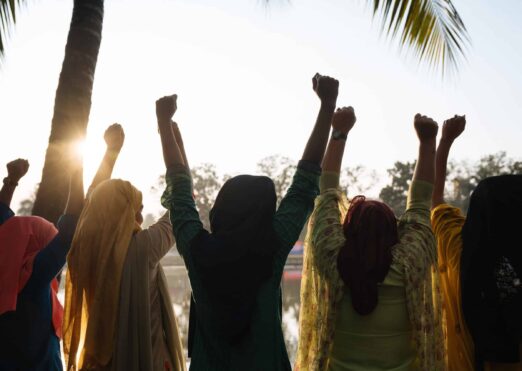Crucial new guidelines expected to boost conviction rates in Bangladesh
January 16, 2024
New guidelines will strengthen the prosecution process for all types of crimes across Bangladesh after Justice and Care drafted them on behalf of the Government.
Existing laws in Bangladesh already allow authorities to utilise foreign evidence for international human trafficking cases. But a 2020 Justice and Care inquiry revealed that use of these channels is nearly non-existent, meaning most investigations end at the border and justice is not served.
Out of 352 human trafficking cases studied, there were only three where evidence originating from foreign countries was produced before the courts.
Digging deeper into the problem, our team found that awareness about these mutual legal assistance channels was limited, with many police officers untrained and unaware of relevant laws and mechanisms for obtaining foreign evidence.
The complex and prolonged nature of cross-border collaboration and the absence of a concise guide also led to the underutilisation of this process.
After identifying the issue caused in the prosecution of human trafficking cases – where most crimes take place in foreign countries – our team notified the Ministry of Home Affairs and were requested to oversee the creation of a new instructional manual, in consultation with all relevant ministries and law enforcement agencies.
After two years of work, the ‘Implementation Guidelines for Mutual Legal Assistance on Criminal Matters’ was endorsed by the Bangladesh Government in the seventh meeting of the National Anti-Human Trafficking Authority.
The guidelines encompass the legal foundation for mutual legal assistance, eligible applications and requests, international legal instruments and execution of incoming foreign requests, among other items.
They are expected to have a widespread impact and enhance conviction rates – not only for trafficking cases, but for all types of transnational crimes, including financial crimes in Bangladesh.
Tariqul Islam, Justice and Care’s Country Director for Bangladesh, said: ‘The guidelines will be crucial to ensuring justice is served for traffickers, who regularly escape punishment for their horrendous crimes.
‘We are proud to work with the Public Security Division of the Ministry of Home Affairs to create the guidelines, and are dedicated to following up to ensure they are being utilised.’


